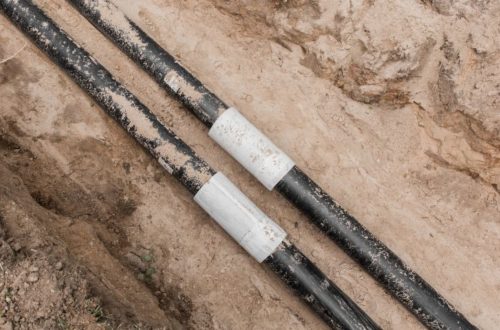Benefits of Energy Audits in Large Warehouses

Energy efficiency is now more critical than ever, especially for businesses managing large warehouses or distribution centers. Operating these facilities requires substantial energy, and without efficient use, costs skyrocket, profits sink, and environmental impacts grow.
An energy audit provides an actionable process to optimize your warehouse’s energy consumption. Here, we go into greater detail about the benefits of energy audits in large warehouses.
What Are Energy Audits and Why Do They Matter?
Simply put, an energy audit is an in-depth evaluation of a facility’s energy usage. Experts thoroughly analyze systems, identify inefficiencies, and recommend improvements to reduce wasted energy and expenses.
It’s important to note that energy audits differ from energy monitoring. While monitoring continuously tracks energy usage patterns, audits provide a detailed, one-time snapshot and specific recommendations. Together, they complement each other, but audits take a proactive, solutions-based approach to resolve inefficiencies.
Energy Efficiency Is Paramount in Warehouses
Warehouses account for significant energy consumption due to refrigeration, heating, cooling, and lighting needs. An energy audit helps warehouse professionals spot areas where simple changes can reduce unnecessary energy use. Installing LED lighting or upgrading to energy-efficient equipment ensures warehouse leaders meet current demands without overburdening their resources.
Economic Benefits of Conducting Energy Audits
One of the most compelling advantages of energy audits is their potential to lower operational costs. By identifying systems wasting energy—such as outdated HVAC equipment or inefficient insulation materials—you can address these issues to trim down utility bills. Over time, these cost reductions add up to substantial savings that positively impact your bottom line.
Sustainability and Environmental Impact
Warehouses that operate sustainably are better equipped to meet modern consumer and partner expectations. Energy audits promote sustainability by uncovering areas where the warehouse can use less energy or where to integrate renewable resources.
For example, introducing rooftop solar panels or transitioning to a partially electric fleet reduces your carbon footprint. Sustainable operations are also a marketable asset in today’s eco-conscious business landscape.
Optimize Operational Efficiency
Beyond cost-cutting and environmental benefits, energy audits drive operational efficiency. By reviewing electrical systems, equipment, and operational schedules, audits can streamline processes. Efficient machinery often requires less maintenance and outages which can improve worker productivity and reduce downtime.
Additionally, when energy-efficient systems are in place, operating conditions—such as consistent cooling—improves and ensure goods are handled safely and efficiently.
Navigate Regulatory Compliance
Energy regulations in warehousing are becoming increasingly stringent. Governments and local authorities are implementing compliance requirements, especially for energy-intensive facilities.
Energy audits serve as a roadmap to make sure your warehouse stays on the right side of these regulations, ultimately avoiding potential penalties. Staying proactive can better position your business for any additional changes to guidelines in the future.
Energy audits equip large warehouses to operate smarter, more sustainably, and more cost-effectively. As technology continues to advance and energy prices fluctuate, the need for data-backed strategies becomes even more apparent. Warehouse professionals and business owners who prioritize energy audits will position themselves for sustained success—financially and environmentally.
Would you like to receive similar articles by email?





